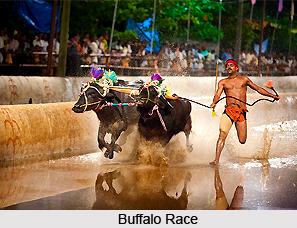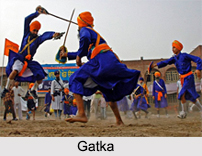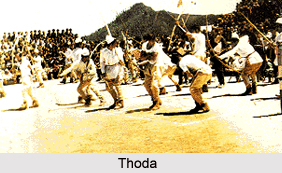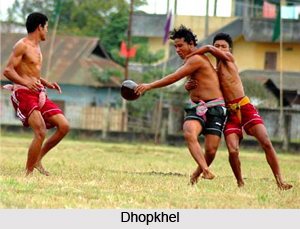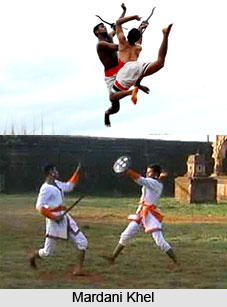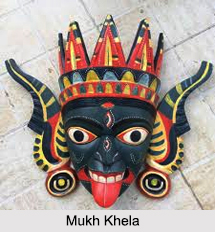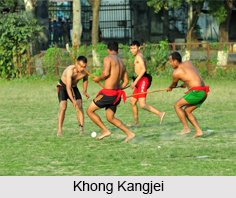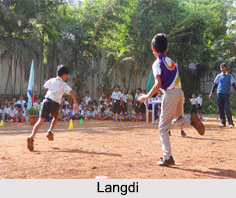 Langdi is a traditional game popular among children, especially in the state of Maharashtra. It is similar to hopscotch and is played literally in every part of India on school level. Langdi is an ancient game of India played during Pandyan Dynasty called “Nondiyaattamâ€. It is described by Marathis as a sport with a Marathi ethos.
Langdi is a traditional game popular among children, especially in the state of Maharashtra. It is similar to hopscotch and is played literally in every part of India on school level. Langdi is an ancient game of India played during Pandyan Dynasty called “Nondiyaattamâ€. It is described by Marathis as a sport with a Marathi ethos.
Langdi is known by various names in different parts of India. In North Eastern States of India it is known as "Kukurazu", "Aroni" or "Gamosa", in Punjab as "Langda Sher", in Delhi as "Langdi Tang", in South as "Kuntata" and in Eastern states like Odisha as "Chuta Gudo".
Development of Langdi
After formation of Langdi Federation of India in 2009, this game is known as "Langdi" all over India. Then Hon. Secretary Langdi Federation of India Mr. Suresh Gandhi studied this Langdi game in deep and started to make unilateral and common rules in 2009. The main intention behind this was to procure organizational structure to Langdi which will help to get popularity, uniformity of Rules and develop and spread the game across all states of India. The game Langdi has been included as regular game in Mumbai University.
After its origin in 2009, Langdi made its entry into International Sports Field by its first appearance at Pokhara, Nepal in 2013.
Rules of Langdi
The game Langdi consists of two teams. The rules of Langdi are as follows:
•Langdi is a team sport between two sides, played 12 players a side, and an additional three extra players.
•The team that wins the toss defends.
•The chasing team sends chasers who hop on one foot and try to tag the defenders.
•The chasers can step out of the ground as long as they keep on one foot.
•The defenders are declared out if they step out of the ground or commit a line fault.
•The team that tags most defenders is declared the winner.
